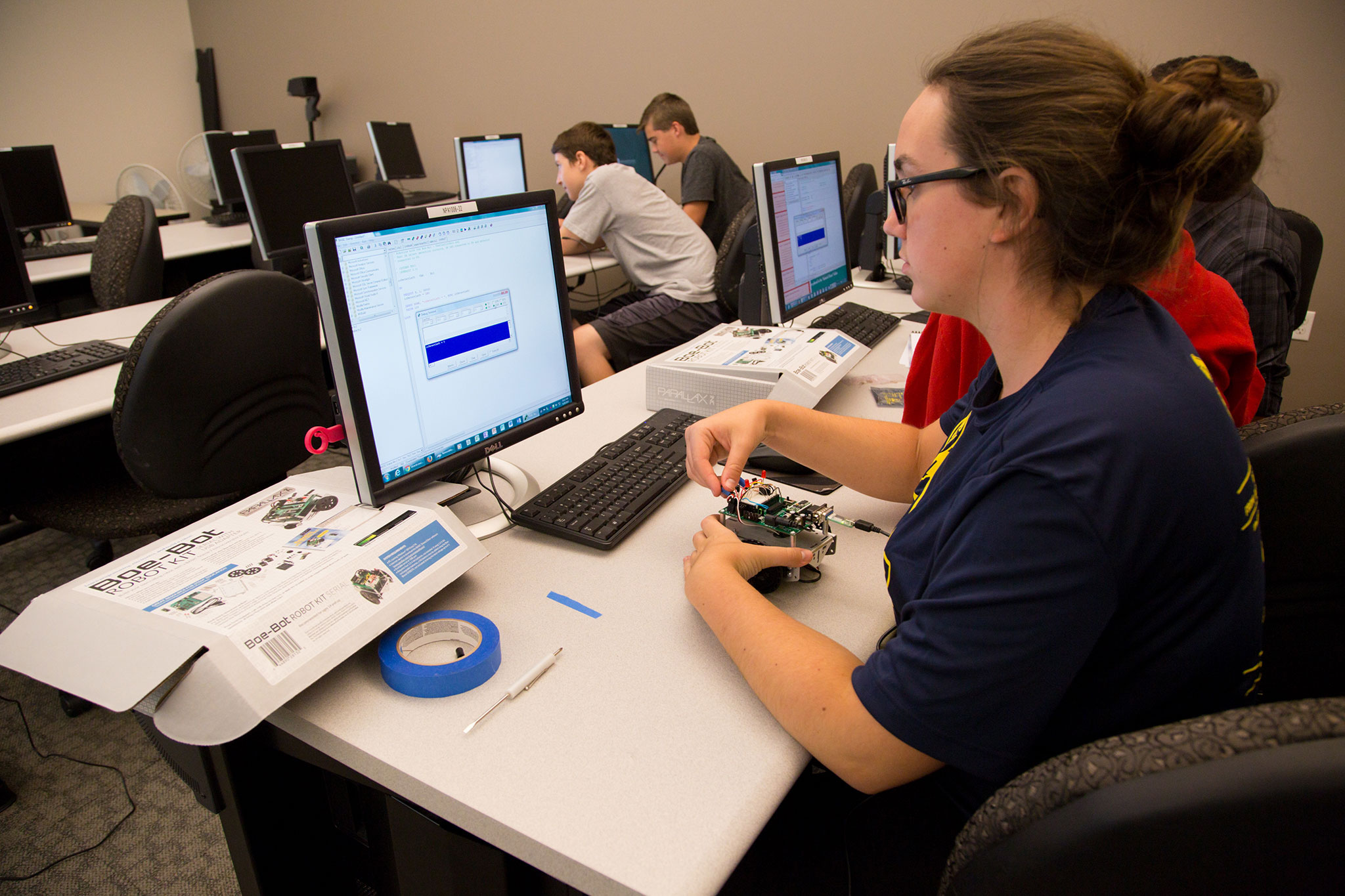
A high school student programs a robot during one of Sacramento State's Summer Academies for High School Youth in 2017. A new program at Sac State will provide local K-12 teachers with a special authorization to teach computer science classes, helping students learn this and other skills. (Sacramento State/Jessica Vernone)
By Jonathan Morales
The state of California has emphasized teaching computer science in K-12 schools. Millions of dollars have been invested in Sacramento-area school districts to create STEM career pathways including in computer science. Students and parents are clamoring for computer science classes.
There’s just one problem: California doesn’t yet offer a computer science teaching credential. For many districts, that means there’s no one who is actually certified to teach the classes.
To address the issue, faculty from Sacramento State’s Teaching Credentials and Computer Science departments this summer are joining to develop a fully online program through which current teachers can earn a “supplementary authorization in computer science,” a special certification that can be added to any credential, allowing them to teach the subject in K-12 classrooms.
Project coordinator Anna Baynes, a professor of Computer Science, said increasing the pool of computer science teachers will create interest in a larger and more diverse group of K-12 students and better prepare them for college.
“A lot of the skills you need to have before you can start to major or start to study computer science, like computational thinking, need to be developed a lot earlier,” Baynes said. “You can’t wait until you’re in high school or college to develop those skills.”
The project is funded through a $30,000 grant from the CSU Chancellor’s Office. Three other CSU campuses – San Francisco, Los Angeles and Dominguez Hills – received similar grants.
Over the next two months, a group of five Computer Science and two Teaching Credentials faculty will develop the five online computer science courses that will be required for the authorization. Computer Science faculty will design the curriculum and teach the courses, with Teaching Credentials faculty working to ensure the content is relevant and teachable in a K-12 setting.
The goal is to have the program, which will be administered by the College of Continuing Education, up and running by summer 2021. Organizers chose to create an online program to make it more accessible to working teachers here in the Sacramento region and throughout the state.
“This is truly an amazing collaboration,” said Deidre Sessoms, chair of the Department of Teaching Credentials and the principal investigator on the grant. “The reason why we got this funding is because the collaboration across these two very different departments is so strong.”
In recent years, California has emphasized creating career pathways, also known as “linked learning,” in high schools to introduce students to potential jobs and professions earlier. Sacramento-area districts, in particular, have received more than $21 million in funding to produce STEM-focused career pathways, including in computer science, Sessoms said.
“We’re meeting a need in the region that aligns with our faculty expertise – both their research and their content expertise,” she said. “One of our local districts very clearly said to us, ‘This is something we need. We need these credentials and authorizations done here, so we don't have to send our teachers elsewhere.’ ”
The new program also could help address another pressing need: increased diversity in computer science professions. Career pathways often are implemented in schools with large numbers of underrepresented and low-income students, Sessoms said.
Generating earlier student interest in the subject likely will lead to more of them studying it in college and eventually choosing it as a career, Baynes said.
“You’re not just going to limit it to folks (whose) dad was an engineer, or they knew someone who led them down that path,” she said. “It becomes a subject like English or biology where you’re expected to have some knowledge in it, and you have confidence for when you’re in college.
“It opens up the field for a lot of people.”
